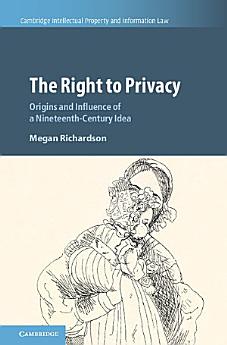The Right to Privacy: Origins and Influence of a Nineteenth-Century Idea
Sep 2017 · Cambridge Intellectual Property and Information Law Book 40 · Cambridge University Press
Ebook
187
Pages
reportRatings and reviews aren’t verified Learn More
About this ebook
Using original and archival material, The Right to Privacy traces the origins and influence of the right to privacy as a social, cultural and legal idea. Richardson argues that this right had emerged as an important legal concept across a number of jurisdictions by the end of the nineteenth century, providing a basis for its recognition as a universal human right in later centuries. This book is a unique contribution to the history of the modern right to privacy. It covers the transition from Georgian to Victorian England, developments in Second Empire France, insights in the lead up to the Bürgerliches Gesetzbuch (BGB) of 1896, and the experience of a rapidly modernising America around the turn of the twentieth century. It will appeal to an audience of academic and postgraduate researchers, as well as to the judiciary and legal practice.
About the author
Megan Richardson is a Professor of Law at the Melbourne Law School, University of Melbourne. Her fields of research and publication include privacy and personality rights, law reform and legal theory. She is Joint Director of the Melbourne Law School's Centre for Media and Communications Law (CMCL) and Director of the Intellectual Property Research Institute of Australia (IPRIA).
Rate this ebook
Tell us what you think.
Reading information
Smartphones and tablets
Install the Google Play Books app for Android and iPad/iPhone. It syncs automatically with your account and allows you to read online or offline wherever you are.
Laptops and computers
You can listen to audiobooks purchased on Google Play using your computer's web browser.
eReaders and other devices
To read on e-ink devices like Kobo eReaders, you'll need to download a file and transfer it to your device. Follow the detailed Help Center instructions to transfer the files to supported eReaders.









